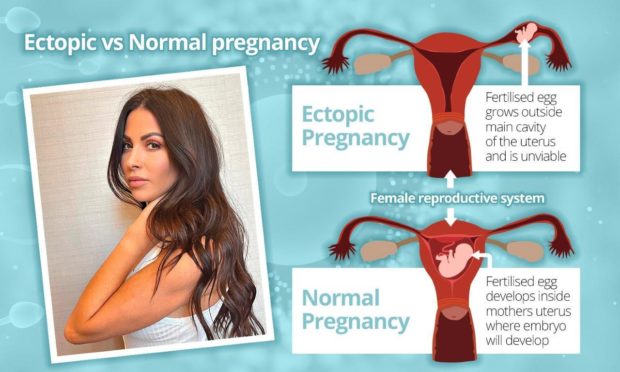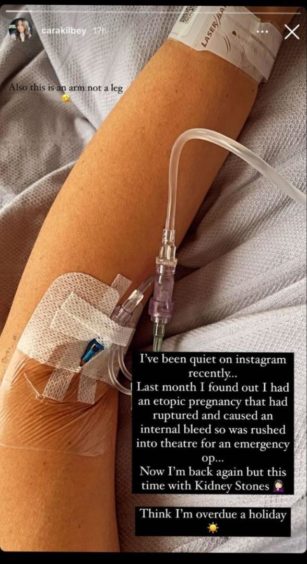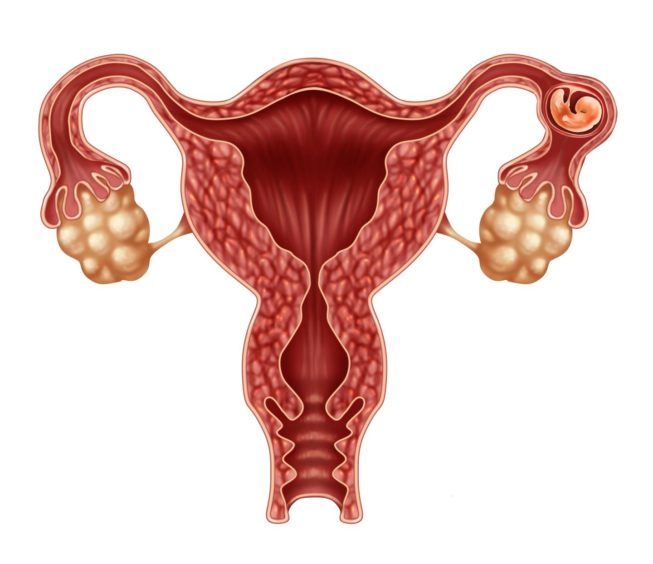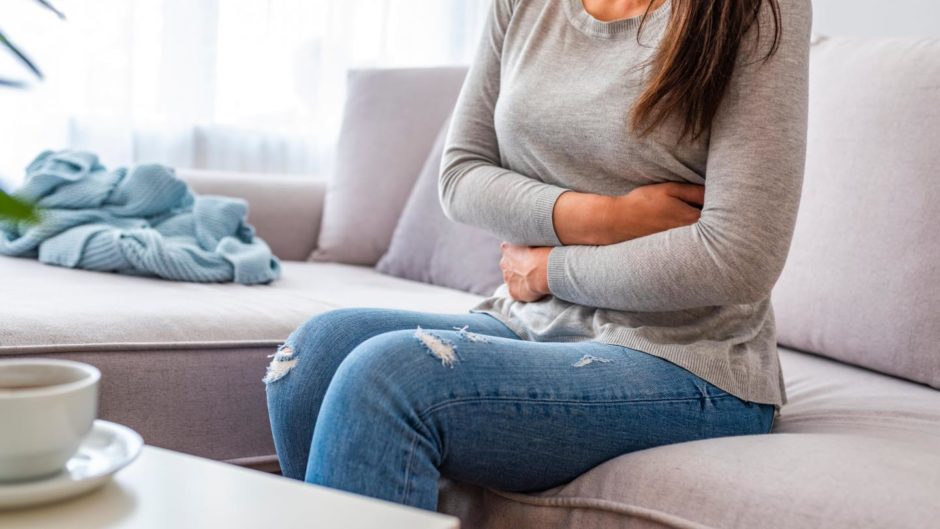Reality TV star Cara Kilbey has revealed she suffered an ectopic pregnancy which led to emergency surgery.
Updating her followers of more than 300,000 on Instagram, Cara explained surgeons had to remove one of her fallopian tubes after it ruptured.
The ruptured fallopian tube caused the former The Only Way Is Essex star to have a potentially life-threatening internal bleed. The mum-of-two added she is now back in hospital for kidney stone treatment.
According to the NHS, in the UK around one in every 90 pregnancies end up being ectopic – that equates to around 11,000 pregnancies a year.
What is an ectopic pregnancy?
An ectopic pregnancy is caused by a fertilised egg implanting itself outside of the womb, usually in a woman’s fallopian tube.
If an egg becomes stuck in a fallopian tube then the baby won’t develop and a woman’s life can be at risk if the condition were to go undetected.
Sadly, an ectopic pregnancy means the baby cannot be saved. The fertilised egg will need to be removed. In order to do so, surgeons will either perform an operation or a woman will be given an injection of methotrexate which stops the pregnancy growing.
What causes an ectopic pregnancy?
Some women will never know the concrete facts behind what caused them to suffer an ectopic pregnancy.
However, there are some factors which can increase the risk of an ectopic pregnancy.
These factors include; pelvic inflammatory disease (PID), having a previous ectopic pregnancy, previous surgery on the fallopian tubes, fertility treatment such as IVF (sometimes taking medication to stimulate ovulation can increase the risk), falling pregnant while using an intrauterine device for contraception, falling pregnant over the age of 35, and smoking.
What are the symptoms to look out for with an ectopic pregnancy?
If symptoms do appear, they tend to develop between weeks four and 12 of pregnancy. On occasion, an ectopic pregnancy won’t present any symptoms and may only be picked up during an ultrasound scan.
Symptoms can include; tummy pain low down on one side, vaginal bleeding or a brown watery discharge, shoulder tip pain, or discomfort when passing urine or stools.
However, it’s important to know these symptoms may not always mean there is an ectopic pregnancy and could be caused by other conditions.
How to spot symptoms of a rupture
Like Cara Kilbey, sometimes an ectopic pregnancy can be life threatening and may require emergency treatment.
Fortunately, it’s uncommon for an ectopic pregnancy to result in a fallopian tube rupturing (splitting open). But if it does occur the fallopian tube will need to be repaired or removed as soon as possible.
A ruptured fallopian tube may cause one or more of the following symptoms; a sharp, sudden and intense abdominal pain, feeling dizzy, sick or fainting or looking very pale.
If a person suspects a rupture they should call 999 immediately.
Where to find support
Suffering an ectopic pregnancy is traumatic and can cause a great deal of grief and stress for both a woman and her family.
It’s important during such a difficult time to seek help and support from family and friends.
A number of support groups are also available for women and their families to contact following a pregnancy loss.
The health board also offers the opportunity to speak to a bereavement support midwife for the area. The midwife can be contacted via Aberdeen Royal Infirmary or a community midwife.




